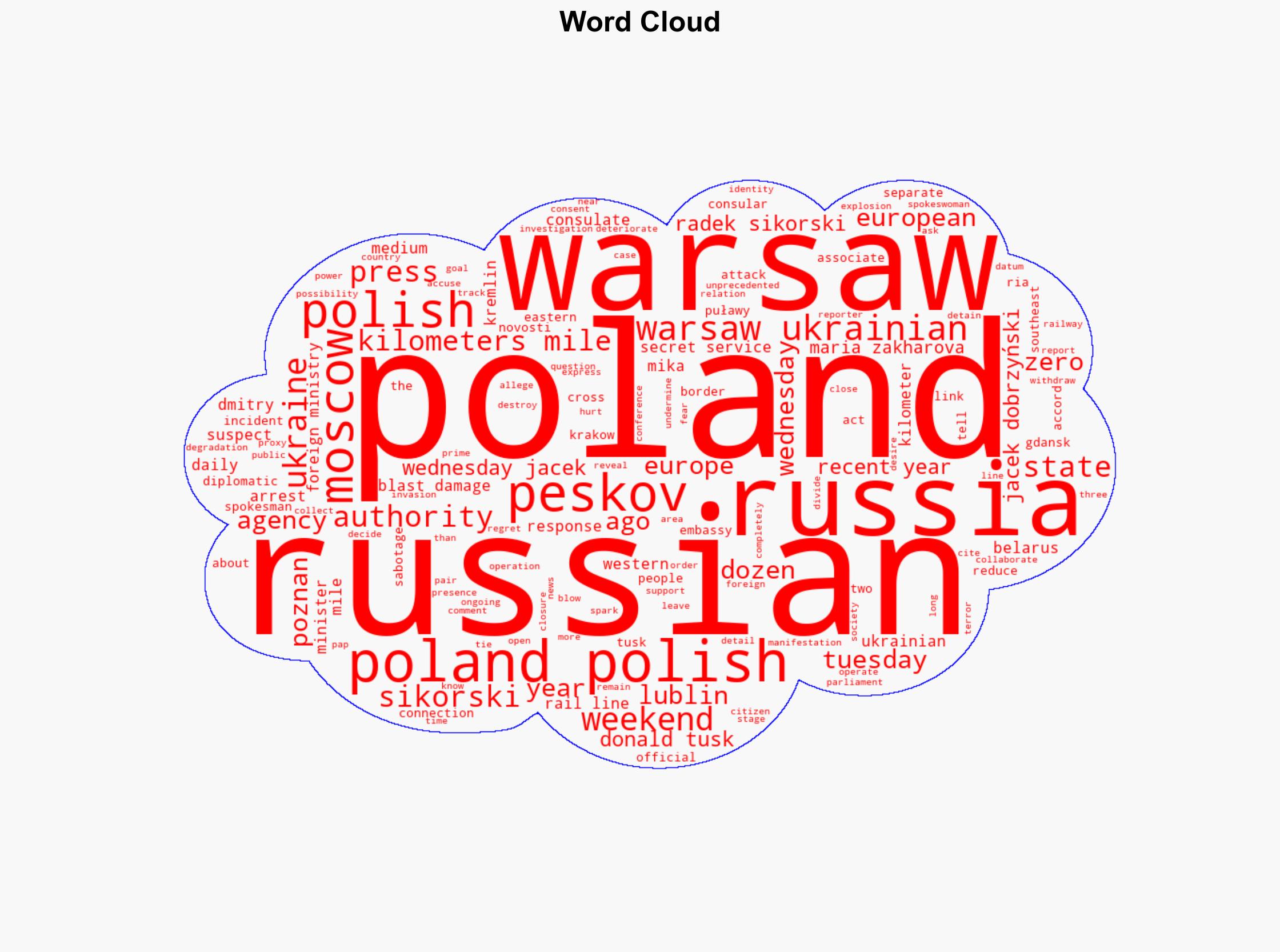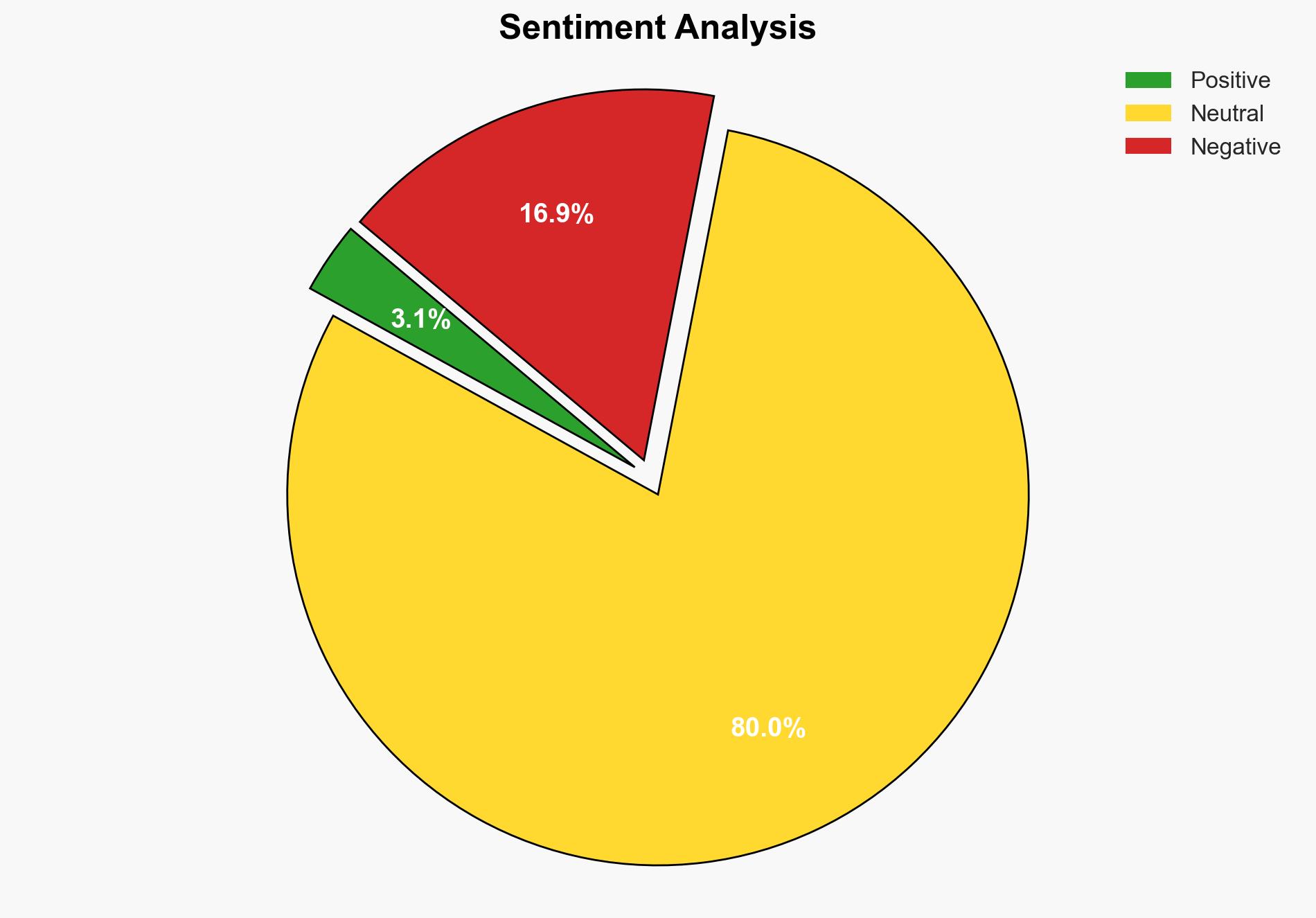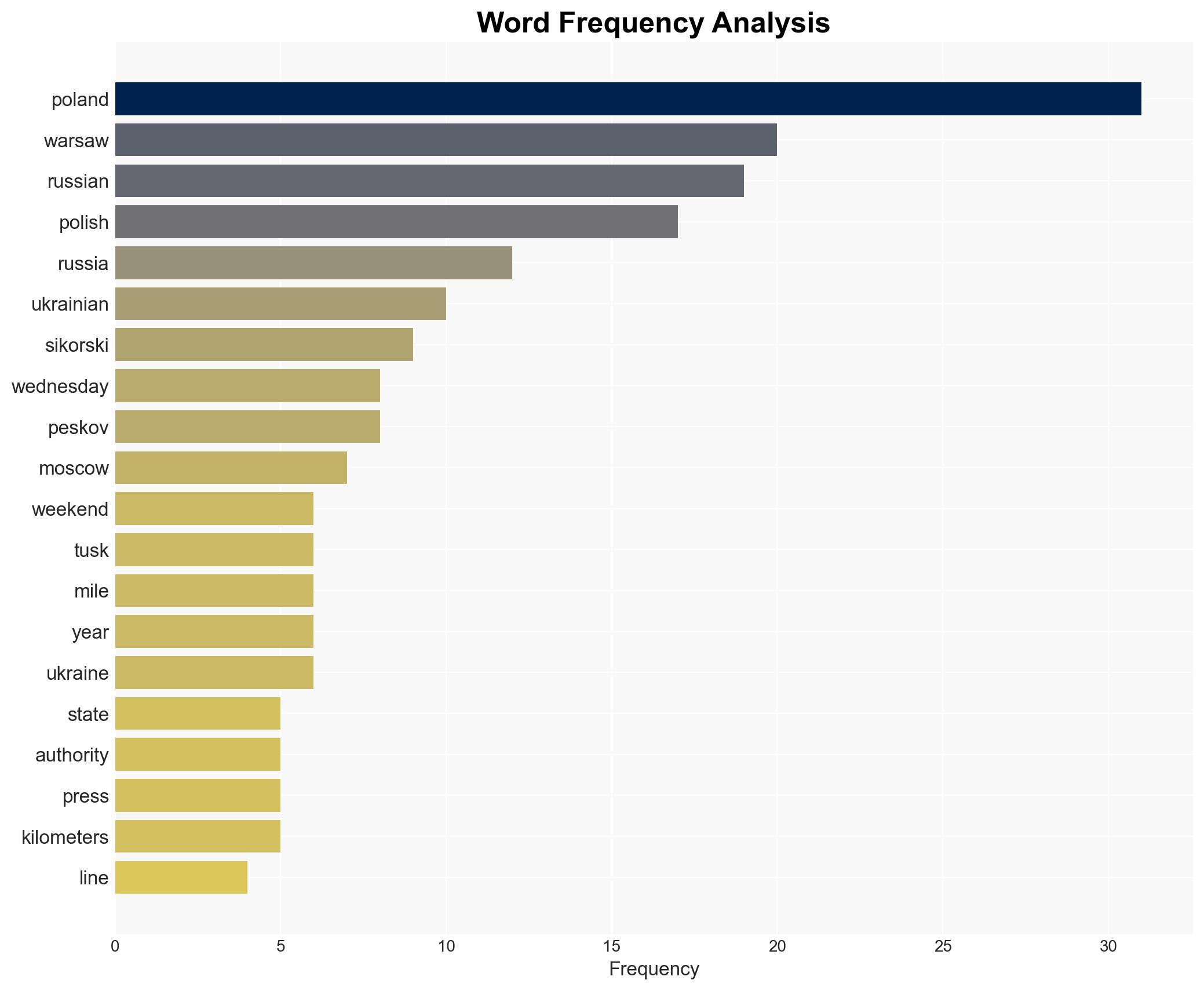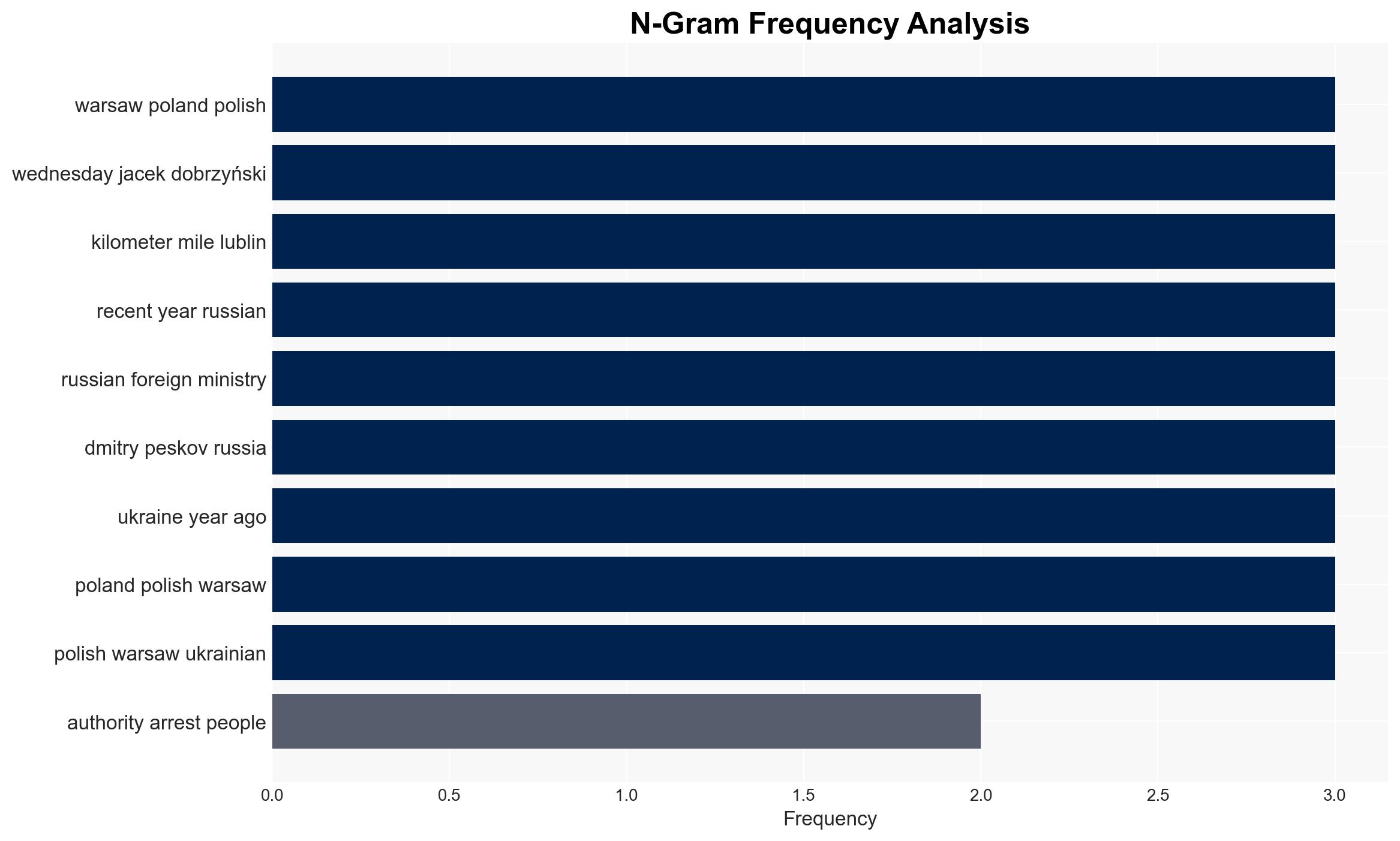Poland to shut last Russian consulate in the country after railway sabotage – ABC News
Published on: 2025-11-19
AI-powered OSINT brief from verified open sources. Automated NLP signal extraction with human verification. See our Methodology and Why WorldWideWatchers.
Intelligence Report:
1. BLUF (Bottom Line Up Front)
With a moderate confidence level, the most supported hypothesis is that the railway sabotage in Poland was orchestrated by individuals linked to Russian intelligence services, aiming to destabilize Poland’s support for Ukraine and strain Polish-Russian diplomatic relations. Recommended action includes enhancing security measures on critical infrastructure and diplomatic channels, while engaging in international cooperation to address potential state-sponsored terrorism.
2. Competing Hypotheses
Hypothesis 1: The railway sabotage was conducted by Ukrainian citizens collaborating with Russian intelligence to undermine Poland’s support for Ukraine and create diplomatic tensions.
Hypothesis 2: The sabotage was an independent act by non-state actors with no direct ties to Russian intelligence, possibly motivated by personal or ideological reasons.
Hypothesis 1 is more likely due to the pattern of similar incidents in Europe attributed to Russian proxies, the geopolitical context, and the strategic impact on Polish-Russian relations.
3. Key Assumptions and Red Flags
Assumptions: It is assumed that the Polish authorities’ information on the suspects’ collaboration with Russian intelligence is credible. The geopolitical tension between Russia and Poland is a significant factor.
Red Flags: The lack of public evidence regarding the suspects’ identities and affiliations raises questions about the transparency of the investigation. The timing of the incident coinciding with heightened tensions could indicate a strategic maneuver.
4. Implications and Strategic Risks
The incident could escalate political tensions between Poland and Russia, potentially leading to diplomatic expulsions and further deterioration of relations. There is a risk of similar acts targeting critical infrastructure, which could disrupt economic activities and public safety. Cyber and informational warfare could be employed to further destabilize the region.
5. Recommendations and Outlook
- Enhance surveillance and security measures on critical infrastructure, particularly those linked to transportation and energy.
- Strengthen diplomatic communication channels with allies to coordinate a unified response to state-sponsored threats.
- Best-case scenario: Improved security measures prevent further incidents, and diplomatic efforts lead to de-escalation.
- Worst-case scenario: Continued sabotage and diplomatic hostilities lead to broader regional instability.
- Most-likely scenario: Ongoing low-level incidents with periodic diplomatic tensions, requiring sustained vigilance and international cooperation.
6. Key Individuals and Entities
Jacek Dobrzyński, Donald Tusk, Radek Sikorski, Maria Zakharova, Dmitry Peskov.
7. Thematic Tags
Structured Analytic Techniques Applied
- Cognitive Bias Stress Test: Expose and correct potential biases in assessments through red-teaming and structured challenge.
- Bayesian Scenario Modeling: Use probabilistic forecasting for conflict trajectories or escalation likelihood.
- Network Influence Mapping: Map relationships between state and non-state actors for impact estimation.
Explore more:
National Security Threats Briefs ·
Daily Summary ·
Support us





